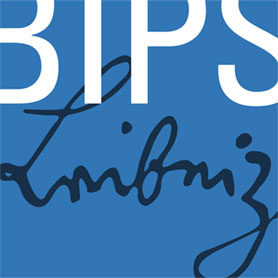Research Cluster 4: "Transfer and Participation"
In this cluster, research focuses on exploring and strengthening community and stakeholder engagement. Furthermore, participatory and collaborative approaches that go beyond one-way messaging will be researched and developed. The Research Cluster aims to explore digital approaches to monitoring health equity in urban areas in order to integrate locally embedded spatial knowledge into health-related planning processes, increase empowerment, improve participation in decision-making processes, and promote cross-sector collaboration for healthy urban development and health equity.
Research Cluster 4 (RC4) on Transfer and Participation in Digital Public Health will develop formats, methods, and strategies focused on inter- and transdisciplinary collaboration between different stakeholders in academia and society in the field of digital public health. To this end, the cluster will focus, on the one hand, on the exploration, design, implementation, and evaluation of digitally enabled participatory approaches to facilitate two-way interaction and knowledge coproduction among academics, practitioners, and citizens in the field of urban health surveillance and healthy city development research. On the other hand, the cluster explores the use of digital technologies in public health practice through the integration of diverse knowledge enabled by innovative participatory approaches. To address the digital divide between different socioeconomic groups, the cluster is not only exploring the role of participatory methods, but also experimenting with different participatory methods to reach different groups with digital public health interventions. To address the equity perspective, the cluster asks about different determinants for engaging hard-to-reach populations and considers early involvement of the community with its locally embedded knowledge in the design and implementation of research. Therefore, the cluster provides both conceptual and practice-oriented insights on the use of (digitally enabled) participatory approaches to bridge existing gaps between research, practice, and everyday life, and to integrate different forms of knowledge from academics, practitioners, policy makers, developers, and super-diverse citizens into collaborative public health research.
The cluster plans to achieve its goals through various scientific studies and research projects. These studies will include systematic reviews as well as transdisciplinary and community-based research. Both qualitative and quantitative methods of data collection and analysis will be used to gain insights into the application of digitally enabled participatory methods in these studies. An overall methodology of the cluster includes the conceptual work on digitally enabled participatory approaches, the development of (digital) methods and tools for conducting collaborative and participatory research, the implementation of the approach, and the evaluation of the results. In this regard, the cluster envisions the exchange of knowledge and expertise from different scientific disciplines, research clusters of LSC Digital Public Health, national and international academics, practitioners from different sectors, and citizens. These exchanges will take place in various forms and formats, such as workshops, joint grant proposals and research projects, scientific conferences, and publications. The cluster will use the "living lab" concept or similar formats to ensure the involvement of diverse stakeholders, including the community, as co-producers of knowledge throughout the research process, from designing research questions to conducting analyses and interpreting results.
Research Cluster 4 seeks to strengthen the development and use of digitally enabled participatory methods and approaches to facilitate inter- and transdisciplinary collaboration and to understand the use of digital technologies in health care in practice. In this way, the cluster aims to improve health equity by promoting meaningful engagement and knowledge integration of diverse stakeholders, including citizens, in health-related planning and decision-making processes.
The cluster plans to achieve its goals through various scientific studies and research projects. These studies will include systematic reviews as well as transdisciplinary and community-based research. Both qualitative and quantitative methods of data collection and analysis will be used to gain insights into the application of digitally enabled participatory methods in these studies. An overall methodology of the cluster includes the conceptual work on digitally enabled participatory approaches, the development of (digital) methods and tools for conducting collaborative and participatory research, the implementation of the approach, and the evaluation of the results. In this regard, the cluster envisions the exchange of knowledge and expertise from different scientific disciplines, research clusters of LSC Digital Public Health, national and international academics, practitioners from different sectors, and citizens. These exchanges will take place in various forms and formats, such as workshops, joint grant proposals and research projects, scientific conferences, and publications. The cluster will use the "living lab" concept or similar formats to ensure the involvement of diverse stakeholders, including the community, as co-producers of knowledge throughout the research process, from designing research questions to conducting analyses and interpreting results.
Research Cluster 4 seeks to strengthen the development and use of digitally enabled participatory methods and approaches to facilitate inter- and transdisciplinary collaboration and to understand the use of digital technologies in health care in practice. In this way, the cluster aims to improve health equity by promoting meaningful engagement and knowledge integration of diverse stakeholders, including citizens, in health-related planning and decision-making processes.
 English (United Kingdom)
English (United Kingdom)  Deutsch (Deutschland)
Deutsch (Deutschland) 


